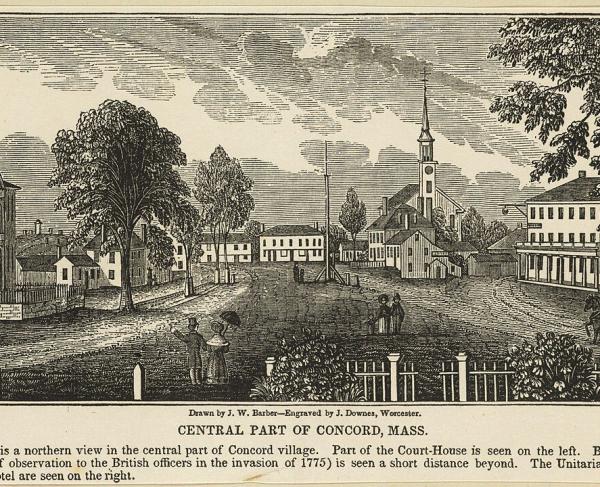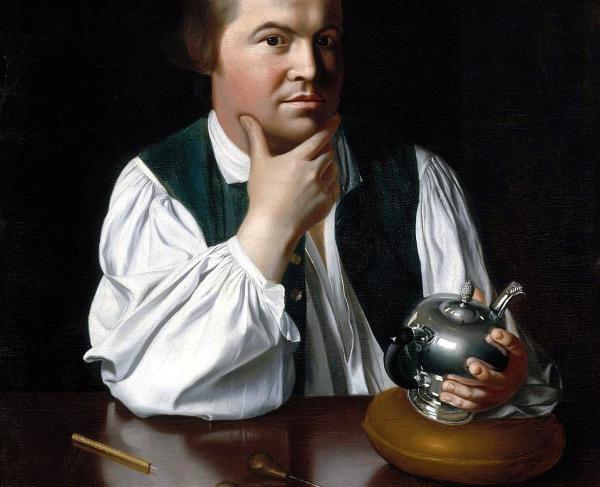Martha Moulton

In 1775, Martha Moulton was 71 years old, widowed, poor, and infirm. She lived alone in Concord, Massachusetts. When British troops marched into her town, she became an important eyewitness to the first battle of the Revolutionary War.
In the late 18th century, tensions between colonists and the British Crown ran high. The colonists were frustrated with British taxation and control over their affairs. On April 19, 1775, these sparks ignited the flame of revolution.
In the early hours of the morning on that fateful April day, a group of American militiamen, known as "Minutemen," gathered on Lexington Green in the quaint town of Lexington, Massachusetts. They were not planning a battle but rather an act of defiance. They knew that a British force was on its way from Boston. These men were on orders from Thomas Gage to seize and destroy colonial contraband military supplies stockpiled by the Provincial Congress in Concord, Massachusetts.
Meanwhile, in Concord, the colonial militia was busy moving around supplies, such as gunpowder and muskets, to prevent them from getting into British hands. Paul Revere and William Dawes set out the night before to warn the countryside of the British movement.
Tensions escalated in Lexington as British troops, known as Redcoats, approached. No one knows who fired the first shot, but a shot rang out, and chaos ensued. Eight Americans were killed and many wounded. The British continued to Concord.
Before the battles at Lexington and Concord, many of Martha Moulton’s neighbors picked up their families and belongings and fled the town when word got around that the British were coming. Martha and a few other lone citizens were all that remained.
At around 8:00 AM, British around 220 troops began to arrive in Concord, led by British commanders Francis Smith and John Pitcairn. According to her Petition to the General Court in February 1776, the British troops entered Concord "in a hostile manner...and drawed up in formation before the door of the house where [she] live[d]…" Some of the men from these troops began demanding water and other provisions from her. She recalls retrieving water and chairs, soon sparking a conversation with them. Soon after Martha noticed what was happening outside her home.
Several of the British companies we ordered to secure the North Bridge across the Concord River, and from there continue to James Barrett's farm, where colonists hid a stock of arms and gunpowder. The remainder of the troops searched for Provincial military supplies in the town center. What little they found, including wooden spoons, cannonballs, and barrels of shovels, was set on fire or thrown into the mill pond.
Martha watched as these troops "set fire to the great gun carriages just by the [Town] house," eventually catching the building on fire. Moulton then "put [her] life, as it were, in [her] hands," and began to beg the officers to put out the fire. She understood that if not handled soon, the row of houses, including the school nearby, would soon be consumed in flames. The men brushed her off at first, saying to her, "O, mother, we will not do you any harm! Do not be concerned, mother!," but Martha's persistence proved successful when finally, "by one pail of water after another, they sent and did extinguish the fire."
While the British continued their search, more colonial militia arrived, their numbers rising to around 400 men. The militia gathered on higher ground and spotted smoke rising from the town center. The militiamen assumed the British were setting the town ablaze, and a skirmish broke out. The famous "shot heard 'round the world" was fired, symbolizing the start of the American Revolution.
The British decided to return to Boston but faced constant pressure from colonial militia along the way. The countryside erupted in defiance, with militia joining the fight. The British suffered losses, and their retreat became long and arduous.
Martha Moulton recounted her experiences in Concord, Massachusetts, one year later in a petition to the General Court of Massachusetts, seeking compensation for lost and damaged property. Her petition was successful, and the court awarded her £3.
Related Battles
93
300


